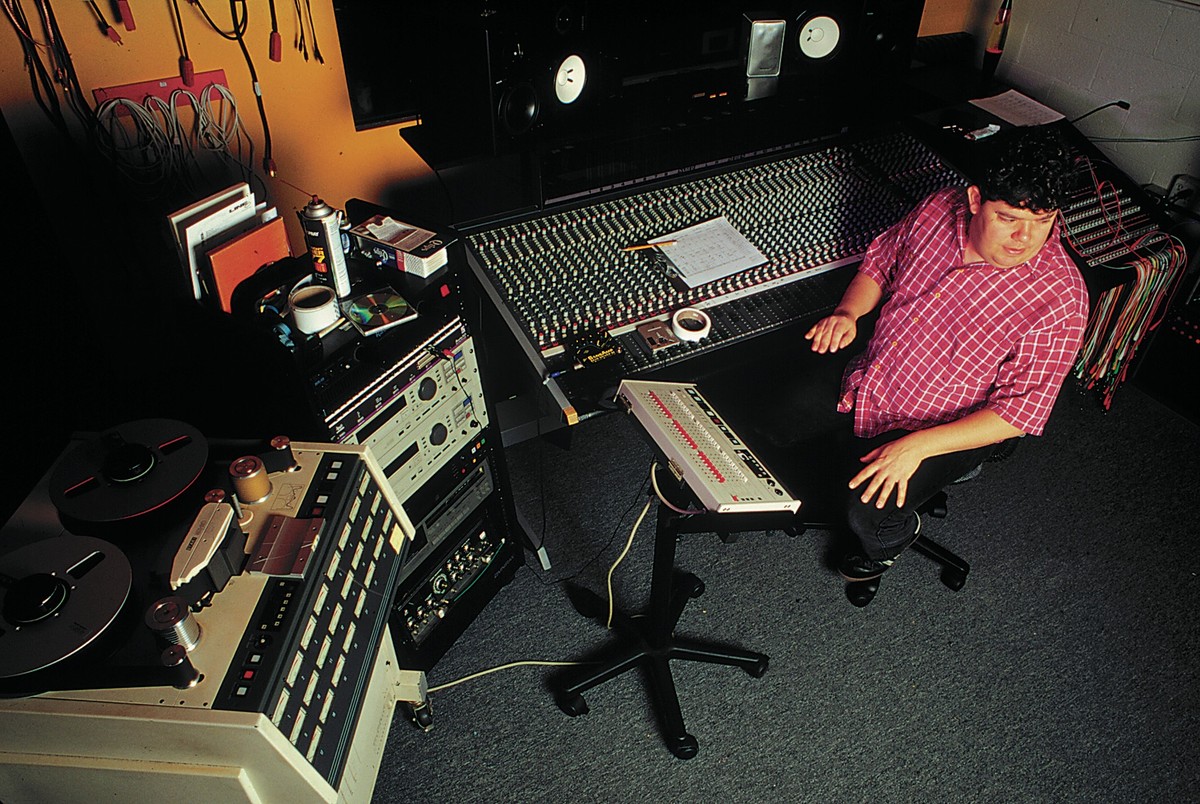I was at a large music conference when, after being introduced to a fellow engineer who's work I greatly admired, I found him asking me if there were any "world-class" studios in Portland, Oregon. I didn't think much of it at the time, and mentioned a few in town that are more "full-featured" or had SSL boards and stuff. It wasn't until later that a fellow studio owner and panelist, Craig Schumacher, brought the question back up. "What the fuck does 'world-class' mean anyway?" Craig said, and this got us talking. Why isn't my studio, Jackpot!, considered in this esteemed category? What studios are? Why?
When I think of "world-class" I think of studios in New York, Los Angeles and Nashville. They have SSL consoles with 5:1 surround monitoring. There's a big video screen for post-production work. Tracking is done to Studers, several of which are waiting in machine rooms nearby, and also to the latest Pro Tools series with the most expensive converters. The floors are hardwood with tasteful rugs in strategic places. The rooms have been designed by acoustical engineers. There's a receptionist when you come in and there's a bowl of fruit and a fridge full of mineral water and microbrews in the lounge.
You know these places — you can see them on the cover of some "other" recording mag every month.
Jackpot! is nothing like that place. There's cheap indoor/outdoor carpet on the cement floor. The couch in the lounge gets rattier every day. The fridge has only condiments in it and if there's any fruit sitting nearby it's probably mine so don't eat it. The console was bought used off a clueless white reggae band. The tape deck is an Otari, no Studer, but it's damn reliable — and there's no recording computer to be found. The rooms have been designed by trial and error and sound okay. There are some damn good mics on the shelf (Manley, Shure, Royer, BLUE, etc.) and some outboard gear that rocks (Summit, Avalon, Daking, Quad-Eight, Drawmer, Demeter and more). In the lounge there's also a wall covered with some pretty cool CDs that have been done here.
But is it "world-class"? I guess not when put up against those SSL rooms with valet parking, but what of the fact that bands have traveled from all across the country and the world to make interesting records here, and the same at Craig's WaveLab Recording?
I was reading Randy McNutt's book, Too Hot to Handle, which is an attempt to list as many of the studios in America in the 20th century as possible (see the review this issue). It was refreshing to realize that so many of these places were funky rooms or buildings that had been pressed into service as studios because there were records to be made. Engineers would move things around until they sounded better, building echo chambers in attics, using gear left over from radio and theaters to record classic hits of yesterday. In fact, I'd bet that most of the popular music of the 20th century was created outside of the bigger, state-of- the-art studios found in a few metropolitan locations.
The large "world-class" studios are feeling a crunch. I've read many interviews with studio owners blaming Pro Tools and home studios for the slow business climate. But were these studios really creating great music? Sometimes maybe, but most of the time not. I feel for anyone who's had the insane urge to open and run a studio of any sort — it's not easy! But I also think too many places were built as the record industry grew fat. You can see it in McNutt's book — as the '60s drew to a close studios started to all buy the same gear, which was now mass produced instead of hand-made. What was once the province of visionaries, hobbyists and musicians became big business. Record labels threw too much money at bands that didn't need it. Studios charged more because the label was paying.
Now is the time that things are changing. 24-track analog decks can be found at realistic prices. Pro Tools and its ilk can provide high fidelity recording at home. Decent mics can be found for $800. Given all that, who needs to go to a "world-class" studio anymore? I'm sure what we'll see in the future is more recording places that are less "full service" and not "world-class" but instead geared to the niche in the recording world that they wish to serve. And people will come back to these places because the work is done with passion and sweat, not because they have the latest gear or nice hardwood floors.


